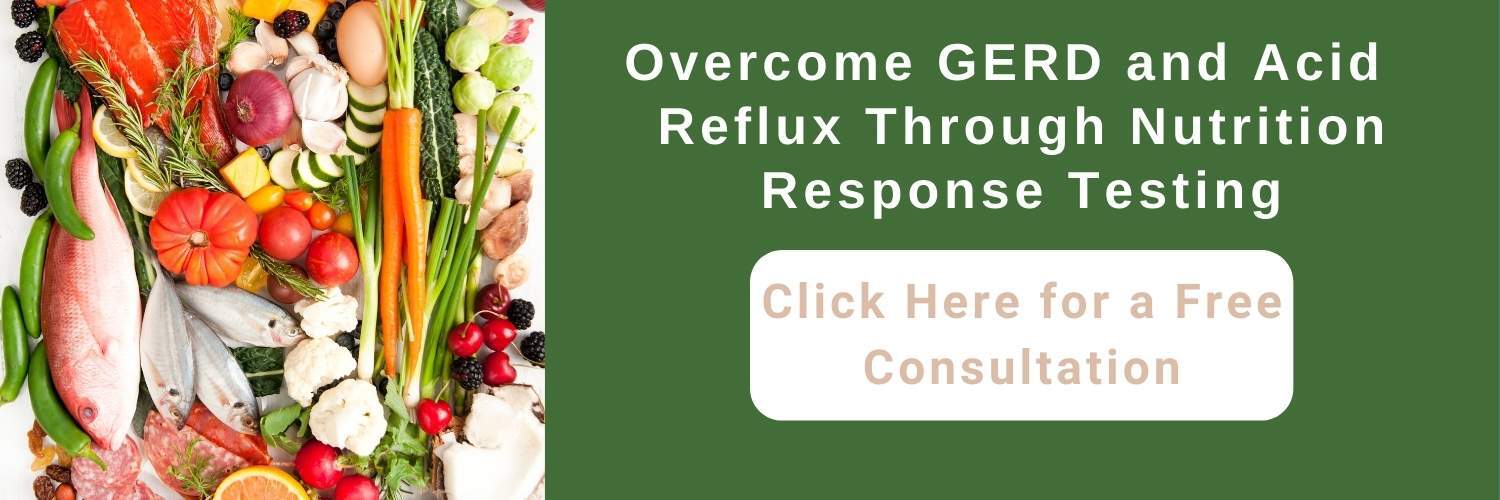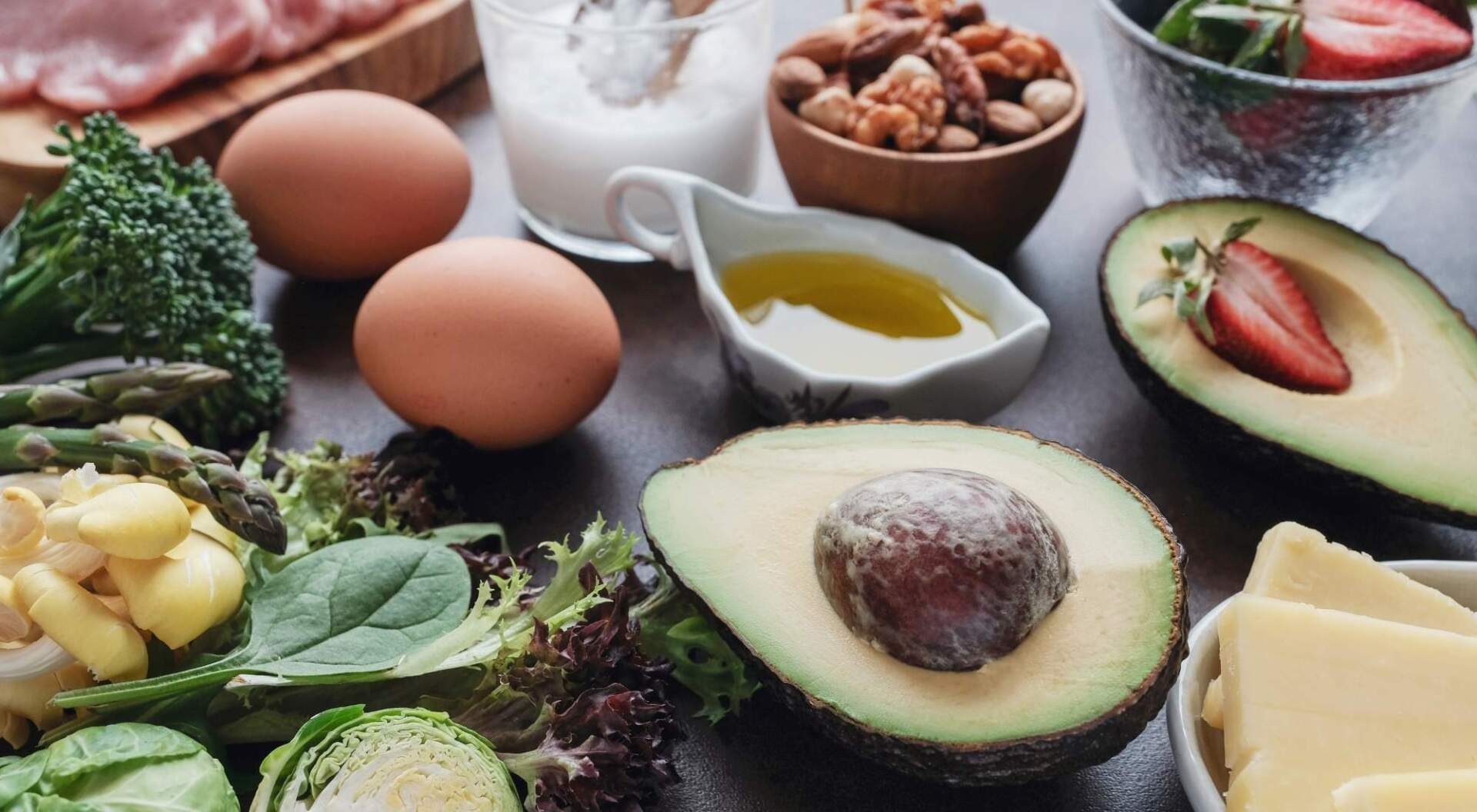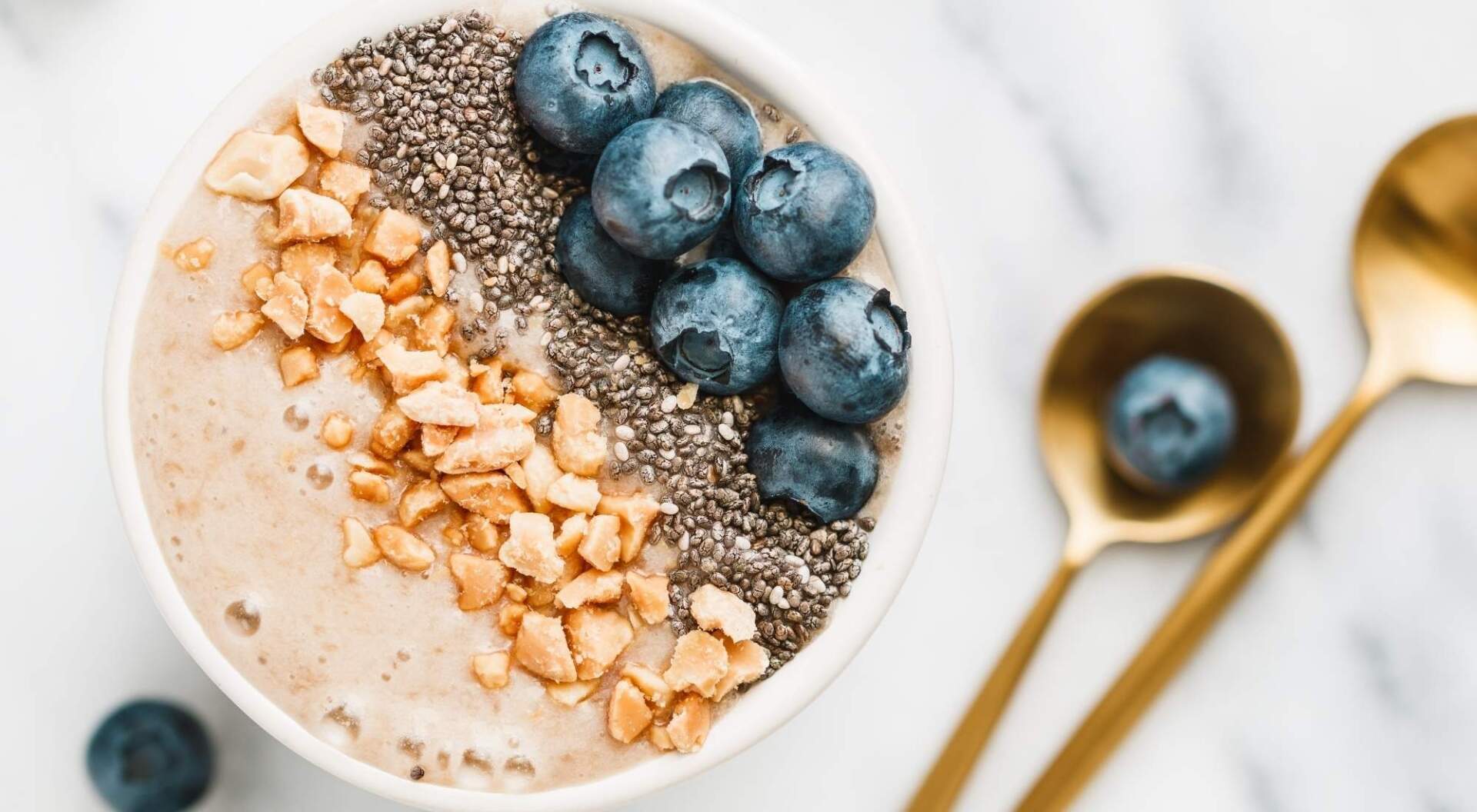What Foods to Avoid With GERD — A Holistic Approach to Managing GERD
"The content below is not intended to be a substitute for professional medical advice, diagnosis, or treatment. Always seek the advice of your physician or other qualified health provider with any questions you may have regarding a medical condition."
One of the best things about family get-togethers is the food — especially Aunt Janet's infamous jalapeño poppers.
While you can normally down more than you care to admit, being diagnosed with GERD has drastically changed what you’re able to eat.
Nowadays, by the time you swallow your second popper, you can feel your first one slowly and surely making its way back up.
You’re fed up with dealing with these symptoms and are wondering what foods to avoid with GERD.
We can help.
Table of Contents
Are GERD and Acid Reflux the Same Thing?
Before we review what foods to avoid with GERD, let's clear up the distinction between GERD and acid reflux.
While frequently lumped together, GERD and acid reflux are closely related, but they do not mean the same thing.
Acid reflux, also known as gastroesophageal reflux or GER, refers to the backward flow of stomach acid into your esophagus (the tube connecting your throat to your stomach).
Acid reflux might occur after you:
- Go out for Mexican food
- Have a few glasses of alcohol; or
- Eat a basket of onion rings
However, if you experience acid reflux more than twice a week, your doctor may diagnose you with gastroesophageal disease or GERD, which is a more severe form of acid reflux.
The National Institute of Diabetes and Digestive and Kidney Diseases reports that an estimated 20% of the US population suffers from gastroesophageal reflux disease.
The signs of GERD can include …
- Difficulty swallowing
- Acid reflux
- Regurgitating food or sour liquid
- Coughing
- Wheezing; and or
- Chest pain
… especially while you are laying down at night.
What Should You Not Eat With GERD?
A huge factor in avoiding the discomfort of GERD is what you include in your diet.
Once swallowed, food travels down your esophagus and stimulates the cells in your stomach to produce acid and pepsin, which help with digestion.
The lower part of your esophagus is home to a band of muscles called the lower esophageal sphincter, or LES.
These muscles act as a barrier to prevent the backflow — or reflux — of the contents of your stomach into your esophagus.
Normally, the LES relaxes to allow swallowed food to pass into your stomach. But if the LES is weak or relaxes at the wrong time, acid reflux occurs.
Some foods can decrease LES pressure and delay the emptying of the stomach, increasing the risk of reflux.
If you are experiencing GERD you may want to avoid the following foods:
- Caffeine
- Spicy food
- Acidic foods such as citrus fruits and tomato-based foods
- Alcohol
- Fried foods
- Fatty foods
- Carbonated beverages
- Garlic
- Onions
Top 5 Foods to Avoid With Acid Reflux and GERD
If you are suffering from acid reflux or GERD, food can be your best friend or your worst enemy.
It's all about finding your triggers and knowing the foods that cause:
- Indigestion
- Heartburn; and
- The other symptoms that accompany these conditions
But the fact is, this can be a little confusing.
There's a lack of consensus in the medical community when it comes to foods to avoid with reflux disease.
However, despite the controversy, most researchers agree that it’s wise to avoid certain types of foods and beverages if you’re wanting to keep the symptoms of GERD at bay.
Below, we will be taking a look at the top five foods to avoid when you have reflux disease.
#1: Spicy Foods
If you’ve ever experienced burping or a burning sensation in your chest after eating ...
- A bowl of Indian curry
- Chips and salsa; or
- A plate of loaded nachos
… you know first-hand just how miserable the aftereffects of spicy food can be.
In fact, a 2019 study revealed that a diet high in spicy foods was associated with a higher risk of heartburn in men.
If you are dealing GERD you will want to avoid foods that include the following spices:
- Chili powder
- White, black and, red pepper
- Paprika
- Turmeric; and
- Curry
What to Eat Instead: Fresh Herbs
If you suffer from GERD, don't despair.
There are plenty of fresh herbs you can add to your meals to provide a burst of flavor.
Foods such as ...
- Cinnamon
- Basil
- Cilantro
- Ginger
- Oregano
- Dill
- Parsley
- Thyme; and
- Tarragon
… will provide all the flavor you need without relaxing your LES and resulting in acid reflux.
#2: Acidic Fruits and Vegetables
Next on our list of what foods and drinks to avoid with GERD are citrus fruits and vegetables.
Citric acid, which is naturally present in citrus fruits and acidic vegetables, can relax your esophagus and make the symptoms of GERD worse.
You’ll want to steer clear of the following common offenders:
- Oranges
- Grapefruits
- Tomatoes
- Pineapple
- Lemons
- Limes
- Tangerines
- Cuties
- Garlic; and
- Onions
And while you're at it, you will also want to avoid ...
- Marinara sauce
- Tomato soup
- Ketchup
- Salsa
- Chili
- Pizza sauce
- Orange juice; and
- Anything containing citric acid
What to Eat Instead: Non-Citrus Fruits and Vegetables
Other types of fruits are less acidic, thus less likely to trigger GERD symptoms in most people.
Some good options for non-citrus fruits and veggies include:
- Watermelon
- Cucumber
- Pears
- Carrot juice
- Aloe vera
- Cabbage
- Beets
- Spinach
- Kale
- Avocado; and
- Green grapes
And speaking of fruits and vegetables, smoothies are a great — and super tasty — option for those suffering from GERD.
#3: Fried Foods
As we are discussing GERD and foods to avoid, fried foods are near the top of the list.
Fried foods are some of the most irritating foods for reflux.
If you want to avoid the symptoms of GERD, skip the:
- Fried chicken
- French fries
- Fried fish
- Fried shrimp
- Deep-fried onion rings
- Potato chips
- Hush puppies; and
- Hash brown potatoes
What to Eat Instead: High-Fiber Foods
Fiber is a digestive aid and can be a huge help for individuals suffering from GERD.
Since fiber absorbs liquids in the digestive system, it prevents stomach acid from traveling up through the esophagus.
Foods that are high in soluble fiber, such as …
- Oatmeal
- Barley
- Quinoa
- Brown rice
- Sweet potatoes
- Carrots
- Beats
- Asparagus
- Green beans; and
- Broccoli
… are tasty and helpful alternatives to fried foods.
#4: High Fat Foods
Next in our discussion of what foods to avoid with GERD are foods that are high in fat, such as:
- Butter
- Cheese
- Ice cream
- Whole milk
- High-fat sour cream
- High-fat creamy salad dressings
- High-fat cuts of red meat; and
- Creamy sauces and dips
Foods with a high fat content sit heavily in your stomach and keep it from emptying in a timely manner.
This can result in the contents of the stomach traveling back up to the esophagus and causing GERD symptoms.
What to Eat Instead: Healthy Fats
If you are worried that you will never be able to consume fat again, don’t fret.
Here are several healthy fats that can energize your body and help you fight GERD:
- Avocados
- Olive oil
- Sesame oil
- Coconut oil
- Flax seeds; and
- Hemp seeds
#5: Caffeinated and Carbonated Drinks
This may be tough to hear, but if you suffer from GERD, you may want to think twice about what you drink.
Beverages such as …
- Your morning coffee
- A glass of iced tea; or
- A diet Coke
… can wreak havoc on your stomach and aggravate your GERD symptoms.
Coffee, tea, and carbonated beverages can stimulate gastric acid secretions, causing them to rise up into the esophagus, and result in increased acid reflux symptoms.
Depending on the individual, decaffeinated coffee may not cause a problem.
You'll want to pay close attention to your symptoms in order to discover the beverages that work well for your body.
What To Eat Instead: Teas and Non-Acidic Beverages
Opt instead for caffeine-free herbal teas — except for peppermint or spearmint — which may trigger acid reflux in a few individuals.
Not only do herbal teas improve digestion, but they also soothe many stomach problems, including gas and nausea.
Teas to look for include:
- Chamomile
- Licorice (root, not the candy)
- Marshmallow (root, not the candy)
- Slippery elm; and
- Green
Are Antacids a Good Option For Treating GERD Symptoms?
What about popping a few antacids to curb your stomach acid problems?
As a short-term solution, antacids can provide relief from the symptoms of GERD.
But the truth is that when antacids are used for a long period of time, they can do more harm than good.
The FDA issued a safety announcement cautioning against the prolonged use of acid-stopping drugs, stating their use may cause an increased bleeding risk.
Long term use of antacids has also been shown to:
- Affect the balance of calcium and acid within the body
- Bring on headaches, nausea, or diarrhea
- Damage the kidneys; and
- Result in constipation
The bottom line is that the best way to reduce acid reflux symptoms is to make adjustments to your diet.
HealthierU Can Help You Find What Triggers GERD and Foods to Avoid Through Nutrition Response Testing
If you are serious about reducing the symptoms of GERD, Nutrition Response Testing at HealthierU can help.
Nutrition Response Testing is a proven, non-invasive way to identify the underlying factors that may be contributing to your health-related issues — including GERD.
Through Nutrition Response Testing, our team can figure out exactly which foods are triggering your GERD and create an individualized plan to deal with the issue and help you get back to normal life.
Our goal is to permanently alleviate your GERD symptoms by using holistic natural remedies.
And we even offer a free consultation.
What are you waiting for? Get in touch with us today and start your journey to optimal health.






